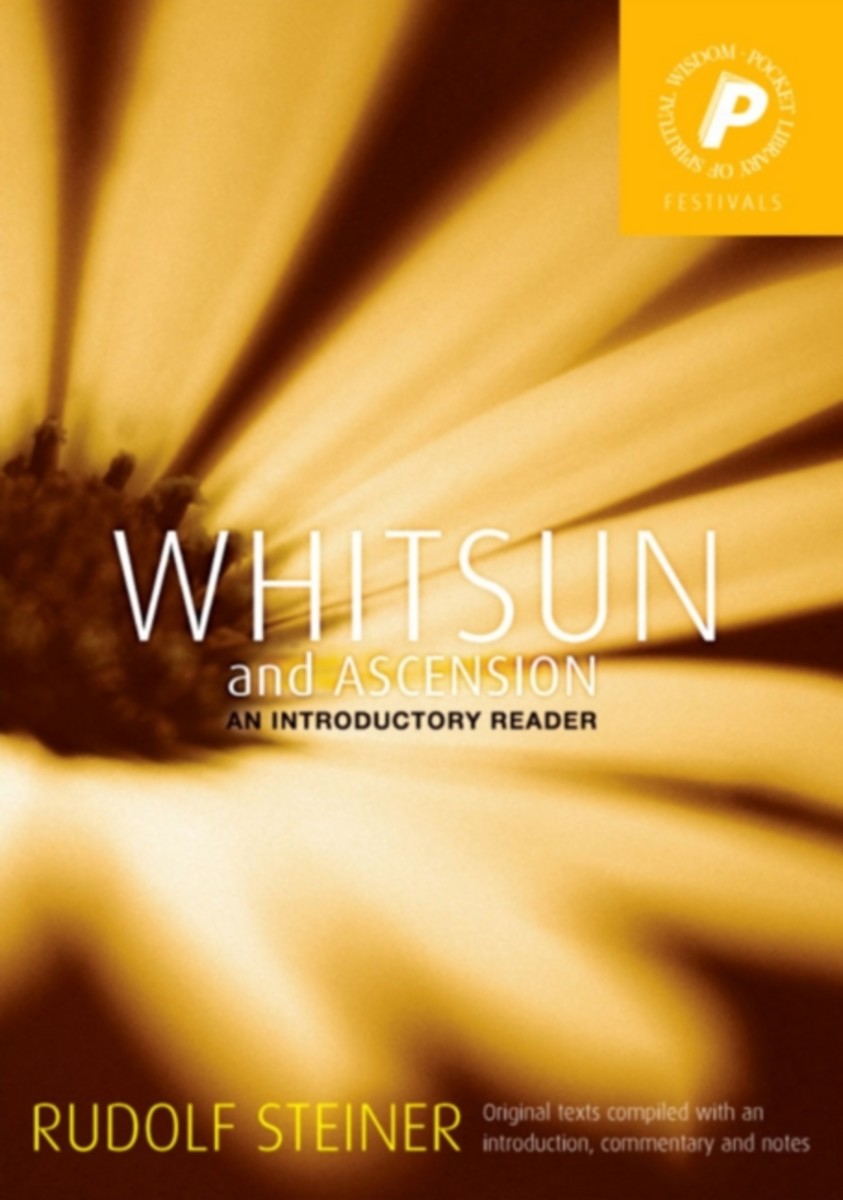Whitsun and Ascension
An Introductory Reader
- Publisher
Rudolf Steiner Press - Published
26th June 2007 - ISBN 9781855841697
- Language English
- Pages 128 pp.
- Size 5" x 6.875"
Matthew Barton collects excerpts from Steiner’s many talks and writings on the festival of Whitsun ("White Sunday"). Known in America as Pentecost, the forty-ninth day following Easter Sunday commemorates the descent of the Holy Spirit on the disciples. The book also includes Steiner's discussions of the Ascension of Jesus Christ forty days after his Resurrection.
Whitsun and Ascension: An Introductory Reader features Barton’s editorial introduction, afterword, commentary, and notes.
C O N T E N T S:
Introduction by Matthew Barton
RISING TO THE CLOUDS, TETHERED TO EARTH
1. Blossoming to Bear Fruit
2. Release from Bondage: A Festival of Awareness
3. Penetrating the Picture
SUFFERING’S OPEN DOOR
4. No Celebration but Truth
5. The Struggles of Prometheus
6. Gain Only through Loss: All Knowledge Born from Pain
ALL ONE TO ALONE TO ONE IN ALL
7. Forming a Conscious Vessel
8. One Fire, Many Tongues
9. Warmth Transmutes Matter
10. The Spirit Lives in Time
HUMAN FREEDOM AND THE WORD
11. The Lost Word
12. From Empty Phrase to Living Word
13. “The Truth Shall Set You Free”
Afterword by Matthew Barton
Rudolf Steiner
Rudolf Steiner (b. Rudolf Joseph Lorenz Steiner, 1861–1925) was born in the small village of Kraljevec, Austro-Hungarian Empire (now in Croatia), where he grew up. As a young man, he lived in Weimar and Berlin, where he became a well-published scientific, literary, and philosophical scholar, known especially for his work with Goethe’s scientific writings. At the beginning of the twentieth century, he began to develop his early philosophical principles into an approach to systematic research into psychological and spiritual phenomena. Formally beginning his spiritual teaching career under the auspices of the Theosophical Society, Steiner came to use the term Anthroposophy (and spiritual science) for his philosophy, spiritual research, and findings. The influence of Steiner’s multifaceted genius has led to innovative and holistic approaches in medicine, various therapies, philosophy, religious renewal, Waldorf education, education for special needs, threefold economics, biodynamic agriculture, Goethean science, architecture, and the arts of drama, speech, and eurythmy. In 1924, Rudolf Steiner founded the General Anthroposophical Society, which today has branches throughout the world. He died in Dornach, Switzerland.


